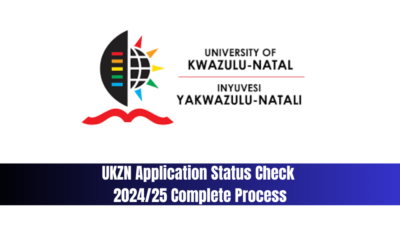UKZN Guide
GBV and Racism are Now compulsory at UKZN

GBV and Racism are Now compulsory at UKZN. In a significant move towards promoting social justice and awareness, the University of KwaZulu-Natal (UKZN) has announced the introduction of a compulsory educational module that addresses critical issues such as gender-based violence (GBV), racism, gender inequality, and classism. This initiative reflects the university’s commitment to fostering a more inclusive and equitable academic environment.
Read Also: UKZN Status Check Online
Module Focus and Objectives
The new module aims to educate students on the pervasive issues of gender-based violence, racism, gender inequality, and classism. By incorporating these topics into the curriculum, UKZN seeks to enhance students’ understanding and awareness of these critical social issues. The overarching goal is to empower students with the knowledge and tools necessary to recognize, confront, and challenge discriminatory behaviors and practices both within the university setting and in broader society.
Implementation and Pilot Phase
Initially, the social justice educational module will be piloted within the College of Humanities. This pilot phase will allow the university to assess the module’s effectiveness, gather feedback, and make any necessary adjustments before it is rolled out to all colleges across the university. The phased approach ensures that the module is thoroughly evaluated and refined, maximizing its impact when it becomes a staple of the university’s curriculum.
University Official Perspective
University officials have emphasized the importance of this module in shaping a more just and aware student body. By making it a compulsory part of the curriculum, UKZN demonstrates its dedication to addressing and mitigating the impact of social injustices on campus. This initiative is part of a broader strategy to create an educational environment that not only promotes academic excellence but also fosters social responsibility and ethical leadership.
Broader Implications
The introduction of this compulsory module is expected to have far-reaching implications. It signifies a proactive step towards embedding principles of equity and justice within higher education. By equipping students with a deep understanding of gender-based violence, racism, gender inequality, and classism, the university aims to cultivate graduates who are not only academically accomplished but also socially conscious and committed to contributing positively to society.
Conclusion
The University of KwaZulu-Natal’s decision to introduce a compulsory module on gender-based violence, racism, gender inequality, and classism is a commendable initiative that underscores the institution’s commitment to social justice. As the module is piloted and eventually expanded to all colleges, it holds the promise of significantly enhancing the university’s educational framework, fostering a culture of awareness, and preparing students to be proactive agents of change in the fight against social injustices.
-

 UKZN Application8 months ago
UKZN Application8 months agoUKZN Application Pending Status Check
-

 UKZN Application8 months ago
UKZN Application8 months agoUKZN Application Status Check 2024/25 Complete Process
-

 UKZN Application6 months ago
UKZN Application6 months agoBridging Courses 2024-2025 at UKZN
-

 UKZN Application8 months ago
UKZN Application8 months agoUKZN Status Check and Accept Offer Complete Guide
-

 UKZN Application8 months ago
UKZN Application8 months agoUKZN Application Dates For 2023/24 Complete Guide
-

 UKZN Application8 months ago
UKZN Application8 months agoUKZN Late Application Status Check – A Comprehensive Guide
-

 UKZN Application6 months ago
UKZN Application6 months agoUniversity of Kwazulu-Natal (UKZN) Prospectus 2023/2024
-

 UKZN Guide8 months ago
UKZN Guide8 months agoUKZN Student Central Step-by-Step Guide










